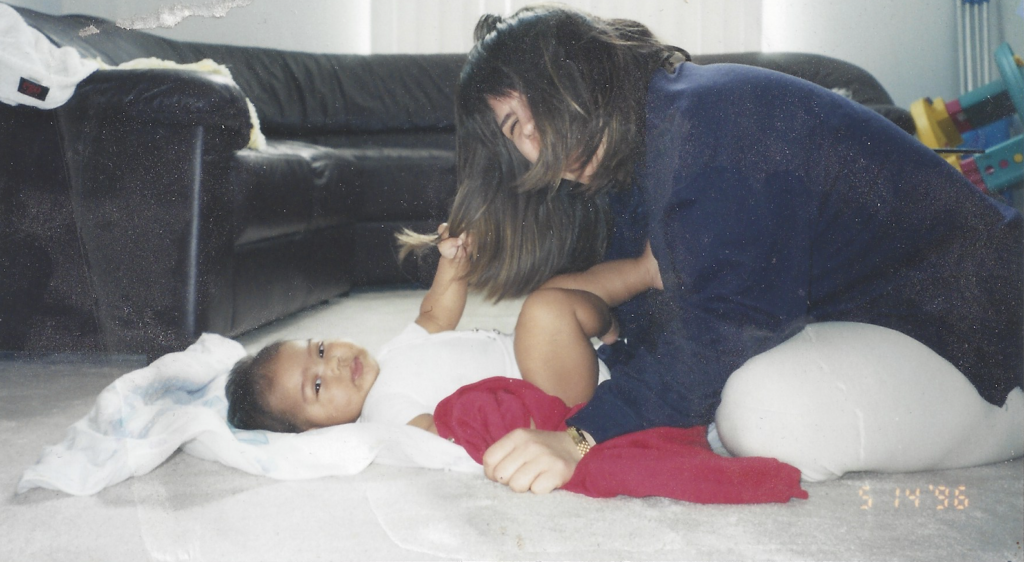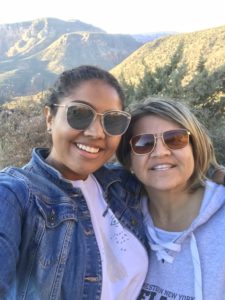
Being born during the 90s in Canada meant that there were never people that looked like me. I think at most there were 5 biracial children at my elementary school. To top it off, I genuinely look like no one in my family. Any experience I ever have is rarely understood. As the daughter of a black parent, they see me as someone safe from the adversity they faced. Light skin equals worth and safety, our experiences are hardly relatable. However, from the perspective of a white parent, systemic racism and objectification don’t exist. At least to their own children because it’s difficult to understand something never experienced or discussed.
I started writing this after being reminded of the disconcerting parenting style of a Mrs. Kim Kardashian. The innate appropriation of black culture that she continuously performs is a slap in the face to her children. It’s disheartening at best to have a family that looks nothing like you yet parades around using your culture as a costume. Their identity is so complex in nature, I can only pray they find autonomy. Luckily for me, my “white family” is Latinx so I have avoided this. No one has attached themselves to a culture that isn’t their own in hopes of “finding themselves”. Although my identity is secure from appropriation it’s frustrating that my experience goes unshared.
For example, I’m almost positive that the first thing people see when they look at me is the ambiguity of my race. They can tell that I’m something ethnic, but they can never put their finger on it. It always becomes a drawn-out guessing game and when I give in, still has the same response
– “wow, that’s so exotic”
and I can see them fitting me into a box. Because I am biracial, people don’t know how to classify me until they know what I am. Which it often leads to a fetishization that I’ve never been comfortable with.
As a child, I used to be stopped in public a lot. My hair was so long and curly, my skin colour so ideal. I’d have the hands of countless white strangers in my hair. Sizing me up and gushing to my mother about how jealous they were of my features. Sure, I was a cute kid, but I was never more than the attributes people would alter their bodies to achieve.
I remember walking down the street when I was young with the chismosa that my mother is. She’d find ways to secure me in my appearance by dragging white women. She’d point to a woman who’d spent too much time in a tanning bed and make comments.“She spends hours trying to get cancer to achieve the skin you were born with. You’re so lucky to be born this way.” She’d talk about how women spend hours chemically altering their hair to get what grows naturally from my head. Or how people would spend thousands of dollars for surgery to get features I was born with. Growing up she always made me feel blessed for looking the way I did, that it made white women envious and so I never really felt insecure in my appearance or identity until I actually understood what being black meant.
When I look back at the parent my mother has been, she has always been a loving one
Constantly a champion for anything I’ve ever done. My hair was always done properly, she even mustered up the courage to drop me off at the black salon she’d found when I thought perming my hair was a good idea. She has always been supportive, but when you do not truly understand the responsibility of raising a black child, that is not enough.
Admittedly her perspective is a tricky one. Although my mother is white in appearance, culturally she’s Latina, making her well versed in racism and colourism. So, when she sees injustice, she’ll be our biggest defender, but if it isn’t blatant and immediate, it doesn’t exist. Her understanding of racism is through the lens of a white saviour complex, not one of understanding. There is no comprehension that her children’s lives will be more difficult than her own and so people like me, often enter the real world unprepared for the realities of society.
In a perfect world,
biracial children of white mothers find preparation for the black tax, for the constant blatant objectification and fetishization we face. Or for the colourism faced from both sides of the spectrum but I don’t think that will happen anytime soon. Especially with how trendy black culture is. Interracial relationships are no longer shocking or frowned upon by society and so there are more biracial children now than ever. Which I have mixed feelings about honestly. Far too many of these kids are born with a fetishization about how attractive they’ll be, how ideal their hair, skin, and eyes will be. These children are born and suddenly the conversation changes to how much of a heartbreaker they’ll be as if ageing these children to objectify them are appropriate. Mixed babies are trendy and so their lived experience becomes meaningless to society.
So, to all those night riders out there, and equally cringe-worthy white women who only date black men, your light skin baby is more than an accessory. Eventually, your child grows up and has to enter the real world, don’t make it more difficult by ignoring their identity. Protect them at all costs. But also educate yourself, start conversations, raise children who feel validated in their identity. Who feel safe, and prepared for success because your child will work twice as hard as everyone else only getting half as far. Raise children who are allowed to enjoy their youth without being told how society is going to sexualize them too young. There is no excuse for your naivety.
